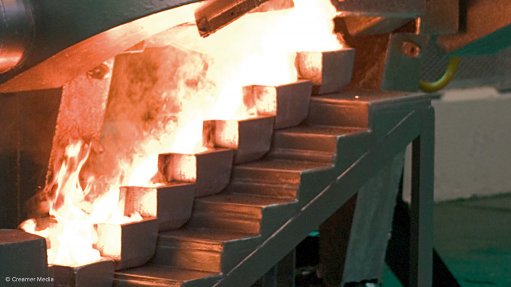
Photo by: Duane Daws
JOHANNESBURG (miningweekly.com) – Gold producers have refused to comment on wage demands made public by Association of Mineworkers and Construction Union (AMCU) last week, other than to say they will engage with all representative unions in a “constructive and proactive way”, with the aim of ensuring the sustainability of the gold industry and preserving jobs, spokesperson for the gold producers Charmane Russell told Mining Weekly Online on Monday.
Union president Joseph Mathunjwa last week told the media that AMCU would seek a monthly wage of R12 500 for workers who currently earn about R6 000 a month.
Additionally, on the issue of AMCU’s claims regarding the payment of excessive pay packages to mining executives, Russell said the issue of executive pay was “a controversial one worldwide”.
“In recognition of this, corporate law and stock exchange regulations in various jurisdictions have introduced rules designed to enhance transparency about amounts paid to CEOs and other executives, and to provide a level of clarity about the relationship between performance, executive pay and wage differentials between executives and other employees,” she added.
She further noted that South Africa had its own advanced regulation in this regard.
“Our companies publish a great deal of this kind of information in their yearly remuneration reports, which form part of their yearly financial reports. It is thanks to this transparency that unions and other stakeholders have access to the information that is needed to challenge companies on these issues,” stated Russell.
Further, she averred that the pay of South African gold company CEOs was “extremely modest” by international standards.
“Our analysis indicates that the CEO pay packages of the three largest companies involved in the wage talks, namely Harmony Gold, AngloGold Ashanti and Sibanye Gold, averaged just 11% of the average packages of their North American counterparts in 2014.
“Analysis by the Chamber of Mines further shows that executive pay in the gold companies represented by the chamber in these wage negotiations makes up an exceptionally small percentage of the wage bill, equating to less than 0.03% overall,” said Russell.
Further, she stressed that it was “simply incorrect” to state that the salaries of the lowest paid employees had not substantially increased over the past 21 years.
“Our data shows that real minimum wages have increased by close to 50% over the period. As is well known, the lowest three job grades have been eliminated during this period, and real increases have accrued to lowest paid workers consistently for more than three decades.
“That said, improving the quality of life and work is an important objective of the industry. The extensive programmes in place in respect of housing and accommodation, indebtedness and healthcare are aimed at addressing this, as are the transformation and education and training programmes in place in our industry.
“The gap between those with the lowest skills and pay in the industry and the highest can only be bridged through skills development and improved productivity,” Russell concluded.